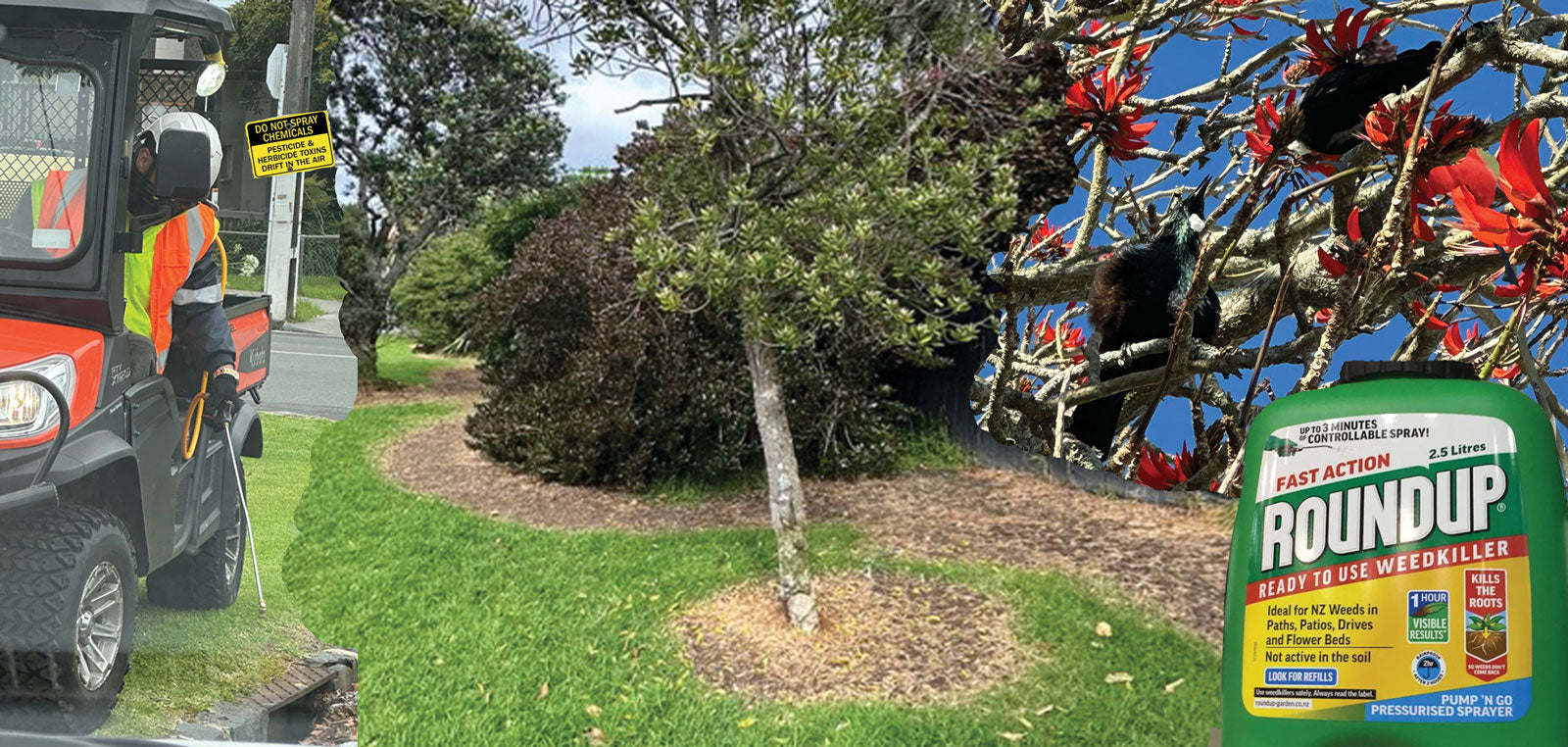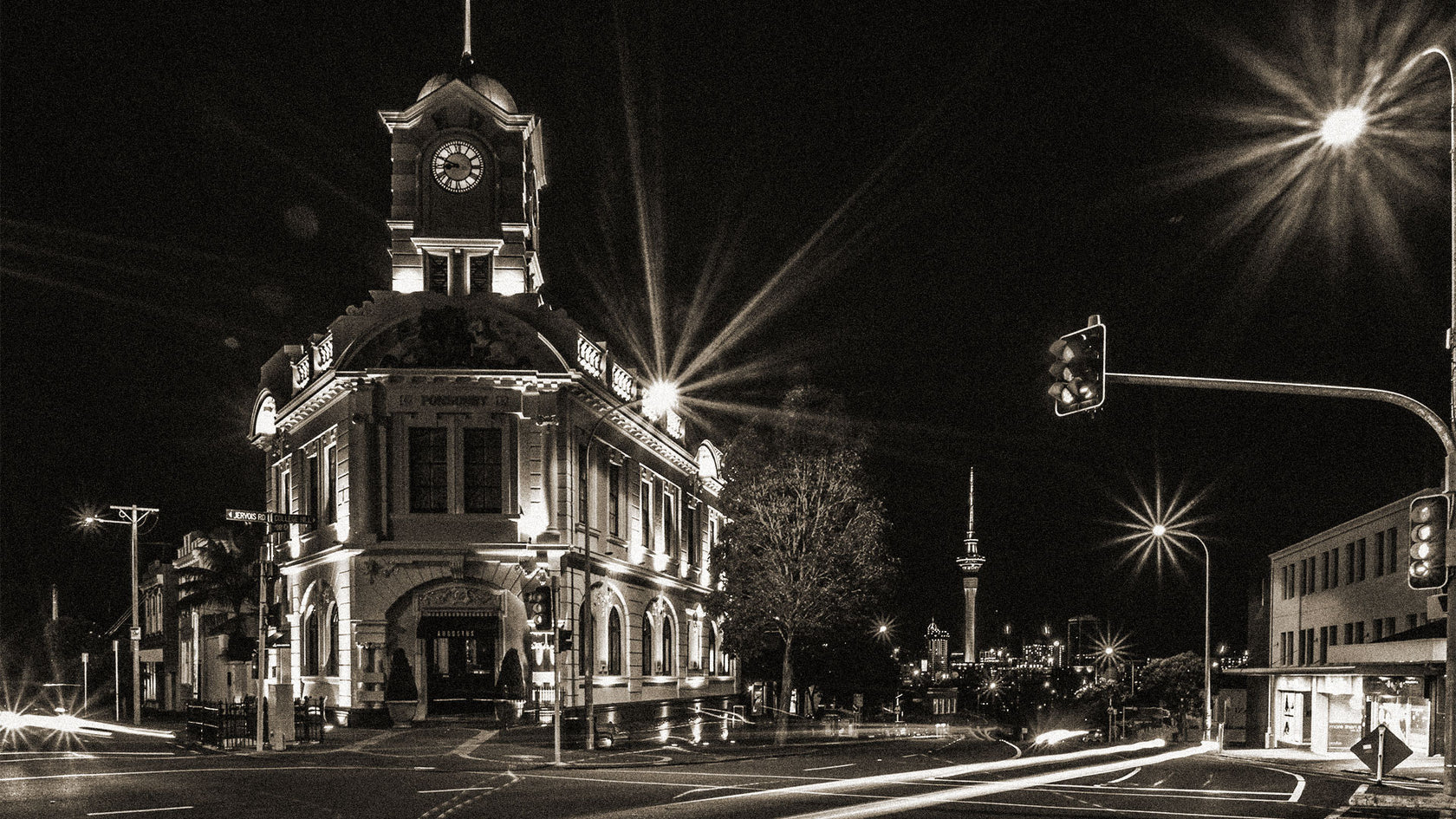There are two very important things you have to do before 11 October.
One is vote. Tick the boxes, seal the envelope and put it in the orange electoral box at your nearest library or supermarket. (If you need advice, read my last month’s opinion piece Best Bets in the Ponsonby News.)
Two is phone Auckland Council on T: 301 0101 to add your place onto the No-Spray Register, stop them spraying carcinogenic glyphosate, aka Round Up, in front of your residence.
The council would have us believe that everyone hates weeds. That weeds are to be feared and loathed for their untidy, wild-child nature, for their irrepressible energy that bursts out of every crack, chink and crevice. Weeds are insolent and disorderly and need to be exterminated. Perhaps this is why Auckland Council officers and elected members have continued spending millions of ratepayers' precious dollars to fight an unwinnable war against the weeds that dare to raise their heads.
In 2024, Auckland Council contractors applied more than 30 tonnes of concentrated glyphosate on berms, gutters, around power poles, sign posts, in parks and reserves. These figures, obtained through an official information request, confirm that chemical weed control has become the default position rather than a last resort. There is wide spread public opposition to the use of invisible chemicals, but the council maintains that it’s not just glyphosate being sprayed daily in our streets in a six week rotation. They say they are using other techniques like weed pulling, high-pressure foam, hot water or plant-based herbicide, but this is obfuscation.
I spoke to an international company who wanted to provide steam treatment solutions for the council. But the information they gave showing the environmental advantages was then skewed to discredit their proposed technique as more expensive, less effective and unsustainable, citing the cost of diesel in boiling the water for steam. Phil Goff was Mayor when Albany ward councillor John Watson challenged the council’s costings. He provided evidence from contractors to prove council quotes were inaccurate. “One of the key facts that came out today was that the cost of thermal methods was around half to a third of what they (the council) had estimated them to be,” he said.
At the height of public outrage over the continued spraying of glyphosate between 2018 and 2020, things became very heated. The council employed a principal environmental specialist to help consult and then implement the Weed Management Plan. The most controversial aspect of it was the use of chemical weed killer glyphosate. This senior employee came under enormous pressure from both the council and members of the public. Allegations of in-house harassment and bullying surfaced. She advocated for an integrated approach to weed management, minimising agrochemical use and suggested empowering the community to help. Tragically, before the plan was implemented, she took her own life. This combined with Covid pushed the Stop Spraying Campaign off the agenda. The public opposition was effectively silenced as rumours of chemical supplier kickbacks swirled around council.
In September 2025, I attended a meeting of the Waitematā Local Board to again raise the 20-year-old issue of spraying poison in Tamaki Makaurau. Retiring councillor Richard Northey was affronted by my comments, insisting City Vision had stopped using glyphosate. “Where?” I asked. He replied, “Victoria Park, Albert Park, Myers Park and Emily Place.”
“So why not stop spraying in all parks, reserves and streets?” I asked. Only silence followed. The hippocracy of the City Vision crowd who claim Greenie credentials but still allow blanket chemical spraying in every street in every suburb is the most compelling reason why I will not vote for them this election. The clandestine practice of spraying at dawn, in the rain and without warning is in my opinion an act of eco terrorism. It kills weeds, and detrimentally affects insects, birds, lizards, worms, people and our pets.
If you ask your vet, they will often side step the issue whilst knowing that dogs who itch and nibble their feet or tummies could have come into contact with fresh weed spray. While pet cancers are increasing, no one (elected or unelected) at Auckland Council has taken responsibility and stopped the use of this well-known carcinogen. On top of this, every time it rains, chemical residues run off private and public properties, flowing directly into the stormwater system and thus into the Hauraki Gulf. Is it any wonder that snapper stocks are low and fish are showing signs of disease and mutation?
Local Board candidate Gael Baldock has always supported a No Spray Policy. At the Surrey Hotel’s ‘meet the candidates' the Community and Residents (C&R) team of Sarah Trotman, Anne Batley Burton, Muy Chhour, Nick Neilson, Leo Grachev and Greg Moyle all supported the idea of stopping spraying, as did Mike Lee who is standing for the Waitematā Council seat.
This is why after you’ve voted for them please make that call to get on the No Spray Register. The quicker we all do this the sooner we will have a chemical free city ensuring the safety of our pets and whanau into the future.
“The only difference between a flower and a weed is judgement” W. Dyer
Lisa Prager, Political Spectator and Long Term No Spray Campaigner
Lisa Prager: Weeds and Wildflowers


